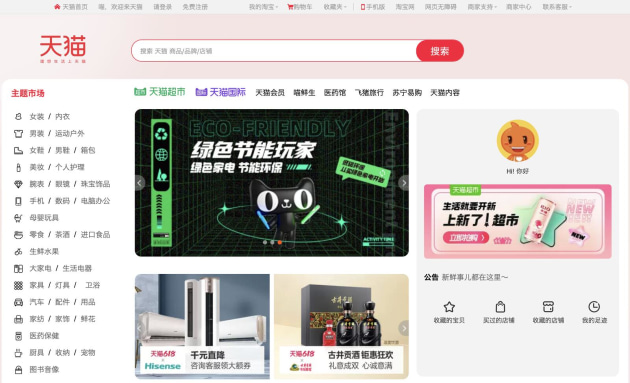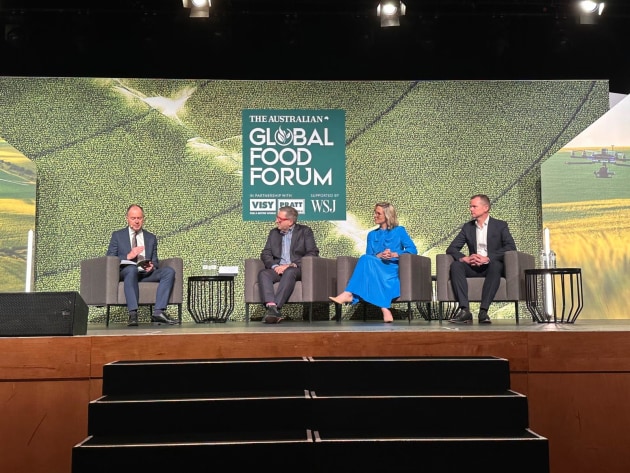China relations, export advice, and resolving supply chain issues were just some of the topics covered at the recent Global Food Forum. Kim Berry was there.
With this year’s theme Beyond Borders: How to profit in a changing world, and the forum’s focus predominantly on agribusiness, the day was always going to focus heavily on China, but there was almost no discussion about potential growth markets including India, or our new free trade agreement with it, other South East Asian markets, or the US and UK (again, another recent FTA), or the ructions in current free trade negotiations with the EU.
We have to talk about China
Time. It was what all the experts who took the stage agreed on. With trade, relationships, and investment, it all was going to need time.
Wattle Hill Capital founder Albert Tse said, “There is a more cautious approach and a lack of consumer confidence. Chinese consumer confidence is linked directly to the real estate market, as it is for Australian consumers. When prices are high, you feel wealthier, and you spend more. At the moment prices are more subdued so that has impacted confidence levels.”
According to Minter Ellison ED International Markets Paris Zhang, consumer confidence is mixed, depending on their socioeconomic situation.
“With consumers gradually regaining confidence, higher spending is starting in some categories – tourism, restaurants, and healthcare – which we call revenge consumption. But the majority are lacking confidence in the future and focussing on more rational consumption, focussing on essential and necessary goods rather than luxury items, so brands must work harder to get back to normal,” she said.
Alibaba Group GM Australia and New Zealand, Pier Smulders, was much more upbeat, saying despite restrictions put on various Australian commodities, food, and beverage sectors, the platform hasn’t seen a lack of demand or interest in Australian brands, and products had continued to see growth.

“We can’t control what governments do, whether it’s a local council, whether it’s a state government or a national government. We have to be adaptable, adept and able to move quickly.
The Alibaba ecosystem is worth around US$1.3 trillion and services 1.3 billion consumers globally.
“The demand in China for Australian products is very, very strong and continues to be so. It’s of course very encouraging to see the relationship improve and the dialogue that is happening now.
“There will be opportunities that come out of that reopening. That may mean that companies that weren’t in certain markets before may be able to get some market share that wasn't there before. And there are new ways to reach customers through digital needs.
“Adversity, as we know in business, almost always leads to opportunity,” Smulders said.
One of the changes Smulder mentioned was Australian brands being more actively engaged in talking to Chinese consumers, rather than products being bought through distributors. He saw potential for high-end Chinese consumers in food tourism, such as a helicopter tour of a large farm to learn how Australian beef is produced.
“It’s not at scale, but those visitors then act as influencers for those products, share the experience on social media and reach a lot of people. There are lots of ways companies can think about engaging with the Chinese community here, and visiting,” Smulder said.
“China is incredibly dynamic and competitive. When I joined the company in 2016, one of its business units, Tmall Global – a cross-border marketplace for foreign brands to sell directly to Chinese consumers – had 3000 flagship stores. Now it has 40,000. And that trend will continue.”
Run your own race
Bundaberg Brewed Drinks CEO John McLean, Little Oak founder and CEO Elke Pascoe, and Darrell Lea general manager Commercial Richard Glenn on diversifying exports into fast-growing markets (one of the few panels to look beyond China).

McLean is at the helm of a soft drink company not interested in competing with PepsiCo or Coca-Cola, mainly because Bundaberg Brewed Drinks (BBD) is already a multinational, exporting to 60 countries.
“It starts with having the world’s best product. We run our own race, we don’t try to be everything to everyone, we get out there and work with fantastic farmers, we use the best ingredients, we work with our local community, and then we sell an awful lot of products internationally.
“We compete against the big guys, but we don’t worry about the big guys. We talk to them, have some great partnerships around the world – PepsiCo is our distributor in the US – and never go into a market with the ‘I’m going to take them out’ attitude. We go in, say we have this fantastic product, they try it and every single one of them says ‘wow’. We distribute bottles of wow,” McLean explained.
He spoke about entering the South Korean market and the importance of having a strong partnership with your in-market representative.
BBD’s Pink Grapefruit is extremely popular in South Korea, at one stage selling 10,000 cases in one week through 17 stores.
But you also need to do your homework, McLean warned, sharing an anecdote about the importance of understanding all the regulations and requirements, but also the cultural ticks. BBD’s Pink Grapefruit uses a particular ingredient that is only grown in Japan and South Korea. Depending on which country you use as a supplier determines which country you can sell your product in. When BBD was starting to export to South Korea, “well, I’ll let you guess which country we had bought the ingredient from”, McLean recounted dryly.
“From a marketing perspective, our experience is what works in Australia doesn’t work internationally. You have built this great brand, you’ve put a lot of your own blood, sweat, and tears into it, and there’s a lot of your personality in it, but you may need to consider a complete reformulation to succeed in an overseas market,” he said.
When Elke Pascoe established Little Oak in 2016, she entered one of the most hotly contested and highly regulated food products, infant and toddler milk formulas, in the world.
Faced with fierce competition and the challenge of standing out in a crowded and largely monopolised-by-multinationals market, Pascoe said passion in her product and the philosophical belief that there were many more children around the world that needed natural nutrition have driven Little Oak’s success.
“From the very beginning we said we wouldn’t aim for China, because every other formula company was doing so, we decided to go elsewhere and quietly get on with what we have to do.
“Every market is considered, and then when we decide, we go hell for leather. Saudi Arabia and the Middle East are our next export goal,” Pascoe said.
“For us it is about picking a small number of retailers that get noticed by other retailers and using that as a blueprint to roll out from there.”
Never stop planning
Christine Holgate, the CEO of Team Global Expressway reflected on what has been a period of “massive disruption”. “It has taught us a lot about the importance of resilience and opportunities. When there is a lot of change, there’s a lot of opportunity. Clearly, it’s been a difficult market, particularly in the supply chain but I’m optimistic,” Holgate said.

As conditions normalise Holgate was asked what the company is doing differently. She reflected on the shortages of labour and changes in the international markets.
“Who knew that Ukraine made semiconductors and none of us would be able to buy a new vehicle in a hurry, that’s a problem for a transport company. What’s come from that is a partnership with Aurizon (Australia’s largest rail freight operator) to build a completely new footprint across the country. Rail is 70 per cent the carbon emissions than road transport. We’re also running the largest trial in the world of a heavy vehicle electric fleet.
“You have to rethink how you do things because there is so much disturbance going on. Covid taught us some good lessons – that even if you’ve got the best risk strategy, nobody foresaw Covid. You have to keep planning and planning differently. I think that is good for business.
This article first appeared in the June/July 2023 edition of Food & Drink Business magazine.







